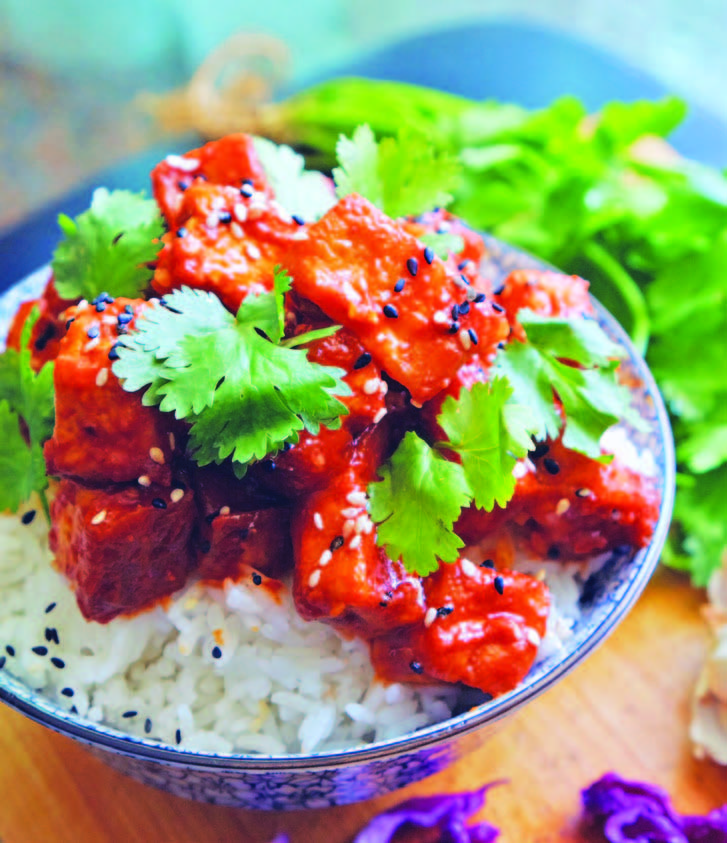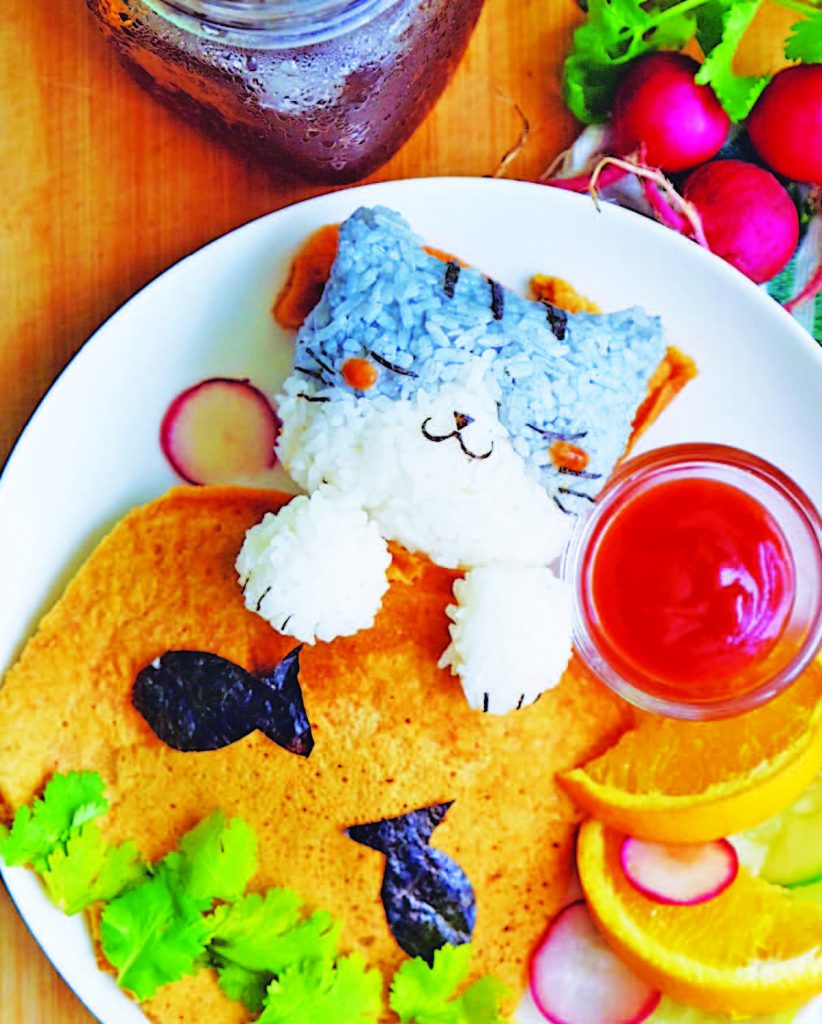“I could not imagine my life without liempo.”
That was my mantra five years ago. Back then, I used to be like anyone else: a ravenous meat eater. I always thought a meal wasn’t a meal unless it was based around animal protein, be it chicken, eggs, fish, or steak (the latter being the best kind).

I would have it anytime of the day as I pleased. Breakfast would comprise of corned beef or spam, eggs, and a glass of milk; lunch came in the form of any fried meat; and when dinner rolled around, you guessed it — more meat! I paired it with a bad eating habit and zero physical activity, which was pretty much the obvious reason why I ballooned to 200 pounds.
But I didn’t mind it at all since I was “happy”. Ignorance was bliss, apparently.
“Meating”my Food
Since I considered myself an epicurean of all things delicious and delectable, it made the most sense that I chose to enrol myself in the culinary arts! That being said, I always thought that the life of a chef was all about the glitz and glamour: You just had to show up in the kitchen and every single item was magically prepped for you as shown on cable TV.

But that was not the case at all. I was hit hard with the reality that I had to get down and dirty with ingredients: fresh vegetables, eggs, or whole animal carcasses!
Butchery — the word said it all. Our class involved hacking the bodies of dead animals to pieces and lining them up neatly to make them more presentable. Unfortunately enough that fateful day, we were assigned to “dress” some chickens: pluck the feathers off, remove all the entrails, and rinse it of all unwanted residue.

I was never the squeamish type. I had a hand at working with almost the same ingredients, so I thought it would just be a breeze.
A breeze it was certainly not!
The Nauseating Reality
When the time came to pull the internal organs out of the chicken’s behind, an overwhelming stench wafted up my nostrils. The awful scent seemed oddly familiar: It was the smell of death mixed with crap.
I knew I had to throw up. As I was at the sink spilling my guts out, something clicked in my head. Questions popped in my mind, like why did I have to do this?
Why did I have to subject myself to this if I found it awful? Why did I need to eat a creature that slept and pooped like I did? Did I really need to kill the innocent if it disgusted me so much?

Was that what compassion felt like?
It started to make sense. I realized that I had labeled animals as “things” so I could easily dispose of them however I pleased, and that doing this was vile and downright revolting.
I wanted to step out for some fresh air, so I asked our chef instructor if I could be excused from class. He immediately obliged. Great! I walked out of the kitchen with snot on my face and a very traumatic experience that took a lot out of me. It made me wonder if we humans were meant to eat meat at all.
When in doubt, the internet will help you out
A few days after that harrowing incident, my head was still filled with all these unanswered questions, so I mustered the courage to do a little snooping on the internet. My main goal was to uncover what truly went behind “animal agriculture”. I typed in “truth + animal farming”, exhaled, and reluctantly pressed enter — and there they were: video after video of real-life horror stories bombarding my computer screen, the next one depicting more graphic imagery than the last.

But what caught my curiosity was the Joaquin Phoenix-narrated documentary on humans’ dependency on animals: Earthlings. I watched silently and cringed. I wanted to look away but my eyes were glued to the screen as the suffering unfolded in front of me.
As I bore witness to the violence towards farm animals, honestly, I was ashamed. My heart was crushed into tiny little pieces and tears flowed from my eyes. It felt like a part of me died.
I couldn’t, for the life me, come to terms that we as a species could be capable of committing such atrocities. What I saw changed my perception of humans. Evil was an understatement.
How it all “Vegan”
I couldn’t have prepared myself for what I had watched. I felt sorry for myself for feeling helpless, for not being able to stop the slaughter of innocent beings, just for them to end up on somebody’s plate. Then, I had another epiphany: Why not start treating animals as friends and not food? In that vein, I said, “F*ck it, I’ll go meat-free.”
At first, my choice to go vegan was met with raised eyebrows from relatives and friends: They shook their heads in disapproval. To them, it was such a foreign construct that they had a difficult time comprehending what it really meant. They even thought it was like one of those fad diets that came and went every season, and I assured them it was not. They even taunted me, saying I wouldn’t last a week and would immediately revert to my old carnist ways.

But my resolve was unwavering. No opposing force could stop me from totally eliminating all animal products from my life. It was a small price to pay in exchange for lives lost.
Initially, I did have a hard time adjusting; somehow, I missed the taste of meat. No surprise, since I relied heavily on meat as my main source of protein. The struggle was real; however, showing a sign of weakness was perfectly fine for it was where I learned to pick myself up and just get better.
With compassion and ethics in mind, transitioning became easier. Being aware that what I put in my body either nourishes or damages it helped, too. My body, after all, was not a graveyard but a garden. I didn’t feel like I was missing out at all.
Now, my only regret is that I should have done it sooner!
Putting the art in heart
ZoneAs a culinarian at heart, I believe that cooking is an art form. I make food not only taste good but also exceptional to look at — we eat with our eyes first, after all.
The challenge was how to make vegan food more appealing, even to meat eaters. It was this thought process that led to make my artsy food.
What was crucial for me was understanding how I could be more inclusive: Educate more and intimidate less. That way, I could effectively get people to consider going vegan. I continue to hope that the work I do towards promoting a vegan lifestyle has a positive impact on people.
This appeared in Animal Scene magazine’s December 2018 issue.





